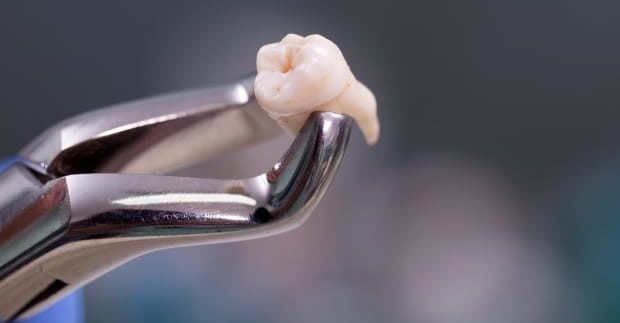Know When To Get Wisdom Teeth Removed
Four little teeth that grow to cause gigantic mouth problems
What are wisdom teeth?
According to the American Dental Association (ADA), wisdom teeth are the third and last molars on each side of the upper and lower jaws. The reason they got the nickname “wisdom teeth” is because they usually come in during the “wiser” years, between ages 17 to 21, unlike most teeth which come in during childhood.
So, what’s the issue with wisdom teeth?
Since wisdom teeth are the third set of molars for some, although it may be uncomfortable at first to get new teeth, after a couple of days they become accustomed to them and there is no issue.
For many, however, it can cause a variety of issues from discomfort to crooked teeth to cavities.
Here are five ways to know if these new molars shouldn’t be here to stay in your mouth.
1. It Hurts
Pain is always a sign something probably isn’t right. When it comes to our wisdom teeth, that is definitely true.
According to Dr. Belt of Durango Dentistry, the mandible on most people usually isn’t long enough to accommodate a third set of molars. In turn this can lead to chronic pain and gum infection.
If you notice or feel the wisdom teeth coming in but it’s very painful, it’s probably time to go visit your dentist. Sometimes the wisdom teeth can come in perfectly straight, which means they may not be painful.
However, for most they come in sideways which can cause them to be impacted, causing more pain, according to Durango Dentistry.
2. Once Straight Teeth Are No Longer
Although cosmetic reasons alone shouldn’t be the reason for removing your wisdom teeth, it can be a result of wisdom teeth coming in incorrectly.
When a wisdom tooth doesn’t have enough room to erupt, it can come in sideways causing crowdedness in your teeth, meaning they may be pushed to where they shouldn’t be, according to the ADA.
3. Infected Mouth
Sometimes removing your wisdom teeth isn’t about pain or overcrowding, it’s also to prevent infection from happening in or around your teeth.
If a wisdom tooth only partially erupts, it may also produce a condition known as pericoronitis. An infection wherein bacteria from food, plaque, and other debris become trapped in between the space of the impacted tooth and the gum, according to Crest.com.
4. Severe Cavities and Tooth Decay
Most of the time cavities aren’t quite a big deal, but when they are caused by wisdom teeth they can quickly become a big deal.
When an impacted wisdom tooth begins to touch and move a healthy regular tooth it can cause such problems as cavities, and unless removed, it can keep on causing them.
Also, the impacted teeth can get cavities that go to the root of the tooth, causing tooth decay that can spread to the surrounding teeth.
According to the American Dental Association, the consequences of this tooth decay could be infected gums and even loss of teeth.
5. Headaches
Impacted wisdom teeth can lead to problems not usually associated with other teeth issues, such as headaches.
Sometimes, although it’s rare, the wisdom teeth can even cause sinus problems and infections.
Although it can seem frightening to have to get teeth removed, when it comes to preventing pain and protecting your overall oral health, getting those wisdom teeth removed might be the best idea.






